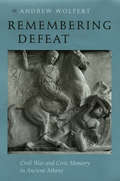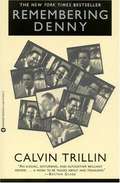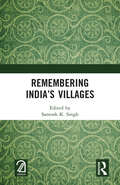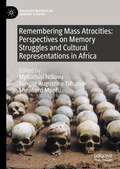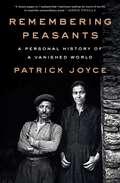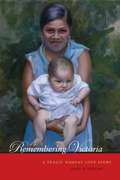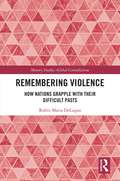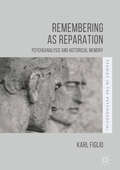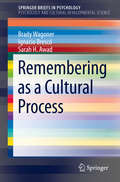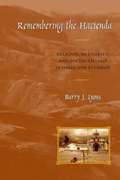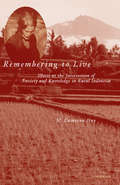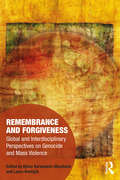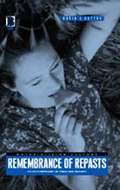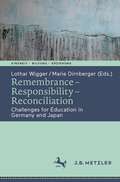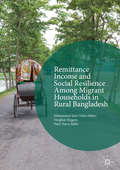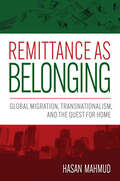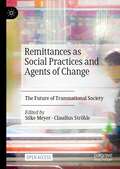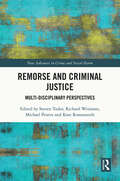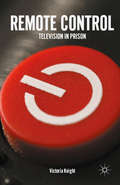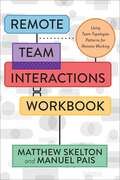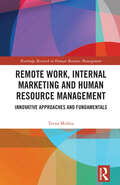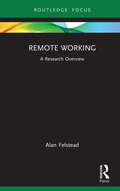- Table View
- List View
Remembering Defeat: Civil War and Civic Memory in Ancient Athens
by Andrew WolpertIn 404 b.c. the Peloponnesian War finally came to an end, when the Athenians, starved into submission, were forced to accept Sparta's terms of surrender. Shortly afterwards a group of thirty conspirators, with Spartan backing ("the Thirty"), overthrew the democracy and established a narrow oligarchy. Although the oligarchs were in power for only thirteen months, they killed more than 5 percent of the citizenry and terrorized the rest by confiscating the property of some and banishing many others. Despite this brutality, members of the democratic resistance movement that regained control of Athens came to terms with the oligarchs and agreed to an amnesty that protected collaborators from prosecution for all but the most severe crimes. The war and subsequent reconciliation of Athenian society has been a rich field for historians of ancient Greece. From a rhetorical and ideological standpoint, this period is unique because of the extraordinary lengths to which the Athenians went to maintain peace. In Remembering Defeat, Andrew Wolpert claims that the peace was "negotiated and constructed in civic discourse" and not imposed upon the populace. Rather than explaining why the reconciliation was successful, as a way of shedding light on changes in Athenian ideology Wolpert uses public speeches of the early fourth century to consider how the Athenians confronted the troubling memories of defeat and civil war, and how they explained to themselves an agreement that allowed the conspirators and their collaborators to go unpunished. Encompassing rhetorical analysis, trauma studies, and recent scholarship on identity, memory, and law, Wolpert's study sheds new light on a pivotal period in Athens' history.
Remembering Denny
by Calvin TrillinAuthor examines the life of Denny, the emblematic college hero of 1957 America. From Denny's Yale graduation and turn as a Rhodes Scholar to his eventual suicide as a middle-aged, mid-level academic, author charts the mysterious course of a life.
Remembering India’s Villages
by Santosh K. SinghIn the time of agrarian crisis and movement, Remembering India’s Villages centralises the rural India—examining its stubborn past and dynamic present. Departing from the myth of little republics, it sees villages in cinema, development discourses, and debates among the founders of modern India like Gandhi, Nehru, Tagore and Ambedkar. Empirical research, multidisciplinary perspective, and cross-cultural insights are useful aids in this book toward understanding the reality of the rural that comprises structural anomalies and social possibilities. The book remembers India’s villages under the trope of reconstitution rather than disappearance. The book adds to the renewed interest in village studies, rural sociology, development studies, and intellectual history. This book is co-published with Aakar Books. Print edition not for sale in South Asia (India, Sri Lanka, Nepal, Bangladesh, Pakistan and Bhutan)
Remembering Mass Atrocities: Perspectives on Memory Struggles and Cultural Representations in Africa (Palgrave Macmillan Memory Studies)
by Shepherd Mpofu Mphathisi Ndlovu Lungile Augustine TshumaThis book explores how popular cultural artifacts, literary texts, commemorative practices and other forms of remembrances are used to convey, transmit and contest memories of mass atrocities in the Global South. Some of these historical atrocities took place during the Cold war. As such, this book unpacks the influence or role of the global powers in conflict in the Global South. Contributors are grappling with a number of issues such as the politics of memorialization, memory conflicts, exhumations, reburials, historical dialogue, peacebuilding and social healing, memory activism, visual representation, transgenerational transmission of memories, and identity politics.
Remembering Peasants: A Personal History of a Vanished World
by Patrick Joyce&“I had been waiting for much of my life to read this extraordinary book…there are clues and messages for every fortunate reader who picks it up.&” —Annie Proulx *A New York Times Book Review Editors&’ Choice* A landmark history of the peasant experience, exploring a now neglected way of life that once encompassed most of humanity, but is rapidly vanishing in our time.&“What the skeleton is to anatomy, the peasant is to history, its essential hidden support.&” For over the past century and a half, and most notably over the last seventy years, the world has become increasingly urban, and the peasant way of life—the dominant way of life for humanity since agriculture began well over 6,000 years ago—is disappearing. In this vital history of peasantry, social historian Patrick Joyce aims to tell the story of this lost world and its people, and how we can commemorate their way of life. In one sense, this is a global history, ambitious in scope, taking us from the urbanization of the early 19th century to the present day. But more specifically, Joyce&’s focus is the demise of the European peasantry and of their rites, traditions, and beliefs. Alongside this he brings in stories of individuals as well as places, including his own family, and looks at how peasants and their ways of life have been memorialized in photographs, literature, and in museums. Joyce explores a people whose voice is vastly underrepresented, and is usually mediated through others, in human history—and now peasants are vanishing in one of the greatest historical transformations of our time. Written with the skill and authority of a great historian, Remembering Peasants is a &“first-class work&” (Kirkus Reviews), a richly complex and passionate history written with exquisite care. It is also deeply resonant, as Joyce shines a light on people whose knowledge of the land is being irretrievably lost during our critical time of climate crisis and the rise of industrial agriculture. Enlightening, timely, and vitally important, this book commemorates an extraordinary culture whose impact on history—and the future—remains profoundly relevant.
Remembering Victoria: A Tragic Nahuat Love Story
by James M. TaggartOn October 15, 1983, a young mother of six was murdered while walking across her village of Huitzilan de Serdán, Mexico, with her infant son and one of her daughters. This woman, Victoria Bonilla, was among more than one hundred villagers who perished in violence that broke out soon after the Mexican army chopped down a cornfield that had been planted on an unused cattle pasture by forty Nahuat villagers.<P><P>In this anthropological account, based on years of fieldwork in Huitzilan, James M. Taggart turns to Victoria's husband, Nacho Angel Hernández, to try to understand how a community based on respect and cooperation descended into horrific violence and fratricide. When the army chopped down the cornfield at Talcuaco, the war that broke out resulted in the complete breakdown of the social and moral order of the community.
Remembering Violence: How Nations Grapple with their Difficult Pasts (Memory Studies: Global Constellations)
by Robin Maria DeLuganThis volume examines the ways in which the violent legacies of the twentieth century continue to affect the concept of the nation. Through a study of three societies’ commemoration of notorious episodes of 1930s state violence, the author considers the manner in which attention to the state violence authoritarianism, and exclusions of the last century have resulted in challenges to dominant conceptions of the nation. Based on extensive ethnographic research in El Salvador, Spain, and the Dominican Republic, Remembering Violence focuses on new public sites of memory, such as museum exhibitions, monuments, and commemorations – powerful loci for representing ideas about the nation – and explores the responses of various actors – civil society, government, and diasporic citizens – as well as those of UN and other international agencies invested in new nation-building goals. With attention to the ways in which memory practices explain ongoing national exclusions and contemporary efforts to contest them, this book will appeal to scholars across the social sciences and humanities with interests in public memory and commemoration.
Remembering as Reparation
by Karl FiglioBelow we have provided very simple written essay and speech on the Mahatma Gandhi, a person who would always live in the heart of everyone. Every kid and children of the India know him by the name of Bapu or Father of the Nation. Using this you can help your kids and school going children to write essay or recite speech on the Mahatma Gandhi in their school
Remembering as a Cultural Process (SpringerBriefs in Psychology)
by Brady Wagoner Sarah H. Awad Ignacio BrescóThis brief charts out principles for a cultural psychology of remembering. The idea at its core is a conceptualization of remembering as a constructive process--something that occurs at the intersection of a person and their social-cultural world. To do this, it moves away from the traditional metaphor of memory as storage and develops the alternative metaphor of construction as part of wider social and cultural developments in society. This new approach is developed from key ideas of Lev Vygotsky and Frederic Bartlett, in particular their concepts of mediation and reconstructive remembering. From this foundation, the authors demonstrate how remembering is conflictual, evolving, and transformative at both the individual and collective level. This approach is illustrated with concrete case studies, which highlight key theoretical concepts moving from micro-level processes to macro-level social phenomena. Among the topics covered are:The microgenesis of memories in conversationThe role of narrative mediation in the recall of historyRemembering through social positions in conflictsUrban memory during revolutionsHow memorials are used to channel grief and collective memoryRemembering as a Cultural Process traces our ongoing journey to answer the question of the different ways in which culture participates in and is constitutive of what it means for humans to remember. It will be of interest to undergraduate and graduate students as well as researchers in the fields of memory studies or cultural psychology.
Remembering the German Democratic Republic
by David Clarke Ute WölfelMemories of and attitudes to the German Democratic Republic (GDR), or East Germany, within contemporary Germany are characterized by their variety and complexity, whilst the debate over how to remember the GDR tells us a lot about how Germans see themselves and their future. This volume provides a range of international perspectives.
Remembering the Hacienda: Religion, Authority, and Social Change in Highland Ecuador
by Barry J. LyonsFrom the colonial period through the mid-twentieth century, haciendas dominated the Latin American countryside. In the Ecuadorian Andes, Runa--Quichua-speaking indigenous people--worked on these large agrarian estates as virtual serfs. In Remembering the Hacienda: Religion, Authority, and Social Change in Highland Ecuador, Barry Lyons probes the workings of power on haciendas and explores the hacienda's contemporary legacy.<P><P>Lyons lived for three years in a Runa village and conducted in-depth interviews with elderly former hacienda laborers. He combines their wrenching accounts with archival evidence to paint an astonishing portrait of daily life on haciendas. Lyons also develops an innovative analysis of hacienda discipline and authority relations. Remembering the Hacienda explains the role of religion as well as the reshaping of Runa culture and identity under the impact of land reform and liberation theology. <P> This beautifully written book is a major contribution to the understanding of social control and domination. It will be valuable reading for a broad audience in anthropology, history, Latin American studies, and religious studies.
Remembering to Live: Illness at the Intersection of Anxiety and Knowledge in Rural Indonesia
by M. Cameron HaySasaks, a people of the Indonesian archipelago, cope with one of the country's worst health records by employing various medical traditions, including their own secret ethnomedical knowledge. But anxiety, in the presence and absence of illness, profoundly shapes the ways Sasaks use healing and knowledge. Hay addresses complex questions regarding cultural models, agency, and other relationships to conclude that the ethnomedical knowledge they use to cope with their illnesses ironically inhibits improvements in their health care.
Remembrance and Forgiveness: Global and Interdisciplinary Perspectives on Genocide and Mass Violence (Memory Studies: Global Constellations)
by Ajlina Karamehić-Muratović and Laura KromjákAn enquiry into the social science of remembrance and forgiveness in global episodes of genocide and mass violence during the post-Holocaust era, this volume explores the ways in which remembrance and forgiveness have changed over time and how they have been used in more recent cases of genocide and mass violence. With case studies from Rwanda, Ethiopia, South Sudan, South Africa, Australia, Cambodia, Indonesia, Timor-Leste, Israel, Palestine, Argentina, Guatemala, El Salvador, the United States, Bosnia and Herzegovina, and Chechnya, the volume avoids a purely legal perspective to open the interpretation of post-genocidal societies, communities, and individuals to global and interdisciplinary perspectives that consider not only forgiveness and thus social harmony, but remembrance and disharmony. This volume will appeal to scholars across the social sciences with interests in memory studies, genocide, remembrance, and forgiveness.
Remembrance of Repasts: An Anthropology of Food and Memory (Materializing Culture)
by David E. SuttonThis book offers a theoretical account of the interrelationship of culture, food and memory. Sutton challenges and expands anthropologys current focus on issues of embodiment, memory and material culture, especially in relation to transnational migration and the flow of culture across borders and boundaries. The Greek island of Kalymnos in the eastern Aegean, where Islanders claim to remember meals long past -- both humble and spectacular provides the main setting for these issues, as well as comparative materials drawn from England and the United States. Despite the growing interest in anthropological accounts of food and in the cultural construction of memory, the intersection of food with memory has not been accorded sustained examination. Cultural practices of feasting and fasting, global flows of food as both gifts and commodities, the rise of processed food and the relationship of orally transmitted recipes to the vast market in speciality cookbooks tie traditional anthropological mainstays such as ritual, exchange and death to more current concerns with structure and history, cognition and the anthropology of the senses. Arguing for the crucial role of a simultaneous consideration of food and memory, this book significantly advances our understanding of cultural processes and reformulates current theoretical preoccupations.
Remembrance – Responsibility – Reconciliation: Challenges for Education in Germany and Japan (Kindheit – Bildung – Erziehung. Philosophische Perspektiven)
by Lothar Wigger Marie DirnbergerGermany and Japan have taken different ways of dealing with the past of the traumatic events of World War II and their own role. Even after 75 years, the battles for remembrance are not over in both countries. Questions about responsibility, about the educational consequences of history and about possibilities for reconciliation with former enemies are constantly being asked anew and require new answers. The contributions in the book address these questions from a Japanese and German perspective on the basis of empirical and historical research, combining historical, educational, and philosophical approaches and opening up new perspectives for academic research as well as for practical educational work by comparing the cultures of remembrance.
Remittance Income and Social Resilience among Migrant Households in Rural Bangladesh
by Vaughan Higgins Mohammad Jalal Uddin Sikder Peter Harry BallisThis book examines how migrant remittances contribute to household social resilience in rural Bangladesh. Using a mixed methods approach, the authors show that remittances play a crucial role in enhancing the life chances and economic livelihoods of rural households, and that remittance income enables households to overcome immediate pressures, adapt to economic and environmental change, build economic and cultural capital, and provide greater certainty in planning for the future. However, the book also reveals that the social and economic benefits of remittances are not experienced equally by all households. Rural village households endure a precarious existence and the potentially positive outcomes of remittances can easily be undermined by a range of external and household-specific factors leading to few, if any, benefits in terms of household social resilience.
Remittance as Belonging: Global Migration, Transnationalism, and the Quest for Home
by Hasan MahmudRemittance as Belonging: Global Migration, Transnationalism, and the Quest for Home argues that migrants' remittances express their sense of belonging and connectedness to their home country of origin, making an integral part of both migrants’ ethnic identity and sense of what they call home. Drawing on three and a half years of ethnographic fieldwork with Bangladeshi migrants in Tokyo and Los Angeles, Hasan Mahmud demonstrates that while migrants go abroad for various reasons, they do not travel alone. Although they leave behind their families in Bangladesh, they move abroad essentially as members of their family and community and maintain their belonging to home through transnational practices, including remittance sending. By conceptualizing remittance as an expression of migrants’ belonging, this book presents detailed accounts of the emergence, growth, decline, and revival of remittances as a function of transformations in migrants’ sense of belonging to home.
Remittances as Social Practices and Agents of Change: The Future of Transnational Society
by Silke Meyer Claudius StröhleThis open access book explores the transformative effects of remittances. Remittances are conceptualized as flows of money, objects, ideas, traditions, and symbolic capital, mapping out a cross-border space in which people live, work, and communicate with multiple belongings. By doing so, they effect social change both in places of origin and destination. However, their power to improve individual living conditions and community infrastructure mainly results from global inequality. Hence, we challenge the remittance mantra and go beyond the migration-development-nexus by revealing dependencies and frictions in remittance relations. Remittances are thus scrutinized in their effects on both social cohesion and social rupture. By highlighting the transformative effects of remittance in the context of conflict, climate change, and the postcolonial, we shed light on the future of transnational society.Presenting empirical case studies from Ghana, Burkina Faso, Sri Lanka, New Zealand, Turkey, Lebanon, USA, Japan, and various European countries, as well as historical North America and the Habsburg Empire, we explore remittance relations from a range of disciplines including anthropology, sociology, history, design, architecture, governance, and peace studies.
Remorse and Criminal Justice: Multi-Disciplinary Perspectives (New Advances in Crime and Social Harm)
by Richard Weisman Michael Proeve Steven Tudor Kate RossmanithThis multidisciplinary collection brings together original contributions to present the best of current thinking about the nature and place of remorse in the context of criminal justice. Despite the wide-spread and long-standing nature of interest in offender remorse, the topic has until recently been peripheral in academic studies. The authors are scholars from North America, the UK, Europe, South Africa and Australia, from diverse academic disciplines. They reflect on the role of remorse in law, for better or for worse, on how expressions of remorse are affected by the legal contexts in which they arise, and on the impact of these expressions on the individual, the court, and the community. The work is divided into four parts – Part I Judging Remorse addresses issues concerning the task of assessing remorse in the courtroom, usually prior to determining sentence. Part II Remorse Beyond the Courtroom explores the place and significance of remorse in various post-court settings. Part III Remorse, War and Social Trauma addresses remorse in the context of political violence and social trauma in the former Yugoslavia and South Africa. Finally, Part IV Reflections seeks to underscore the multidisciplinary and interdisciplinary nature of the collection as a whole, through personal and disciplinary reflections on remorse. The work provides a showcase for how diverse academic disciplines can be brought together through a focus on a common topic. As such, the collection will become a standard reference work for further research across a range of disciplines and promote inter-disciplinary dialogue.
Remote Control: Television in Prison
by V. KnightIn-cell television is now a permanent feature of prisons in England and Wales, and a key part of the experience of modern incarceration. This sociological exploration of prisoners' use of television offers an engaging and thought provoking insight into the domestic and everyday lives of people in prison - with television close at hand. Victoria Knight explores how television contributes to imprisonment by normalising the prison cell. In doing so it legitimates this space to hold prisoners for long periods of time, typically without structured activity. As a consequence, television's place in the modern prison has also come to represent an unanticipated resource in the package of care for prisoners.This book uncovers the complex and rich emotive responses to prison life. Dimensions of boredom, anger, frustration, pleasure and happiness appear through the rich narratives of both prisoners and staff, indicating the ways institutions and individuals deal with their emotions. It also offers an insight into the unfolding future of the digital world in prisons and begins to consider how the prisoner can benefit from engagement with digital technologies. It will be of great interest to practitioners and scholars of prisons and penology, as well as those interested in the impact of television on society.
Remote Control: Television in Prison
by Victoria KnightIn-cell television is now a permanent feature of prisons in England and Wales, and a key part of the experience of modern incarceration. This sociological exploration of prisoners' use of television offers an engaging and thought provoking insight into the domestic and everyday lives of people in prison - with television close at hand. Victoria Knight explores how television contributes to imprisonment by normalising the prison cell. In doing so it legitimates this space to hold prisoners for long periods of time, typically without structured activity. As a consequence, television's place in the modern prison has also come to represent an unanticipated resource in the package of care for prisoners.
Remote Team Interactions Workbook: Using Team Topologies Patterns for Remote Working
by Matthew SkeltonIn the new remote-first and hybrid workplace, many organizations are struggling to catch up with new tooling and ways of working. Many are discovering for the first time that the physical office was covering up poorly defined teams and poorly defined areas of focus, threatening their DevOps transformation efforts and the overall health and success of their business. Matthew Skelton and Manuel Pais, coauthors of the highly successful Team Topologies, provide proven patterns for a successful remote-first approach to teams. Using simple tools for dependency tracking and patterns from Team Topologies, such as the Team API, organizations will find that well-defined team interactions are key to effective IT delivery in the remote-first world.This workbook explores several aspects of team-first remote work, including: •How the new &“remote-first&” world is highlighting existing poor team interactions within organizations.•Why organizations should use the Team API pattern to define and communicate the focus of teams.•How organizations can track and remove team-level dependencies.•How and why organizations should design inter-team communications consciously.•How and why organizations can use the three team interaction modes from Team Topologies (collaboration, x-as-a-service, and facilitating) to help.The ideas and patterns presented here will help your organization become more effective with a team-based, remote-first approach to building and running software systems.
Remote Work Revolution: Succeeding from Anywhere
by Tsedal Neeley“I often talk about the importance of trust when it comes to work: the trust of your employees and building trust with your customers. This book provides a blueprint for how to build and maintain that trust and connection in a digital environment.” —Eric S. Yuan, founder and CEO of ZoomA Harvard Business School professor and leading expert in virtual and global work provides remote workers and leaders with the best practices necessary to perform at the highest levels in their organizations. The rapid and unprecedented changes brought on by Covid-19 have accelerated the transition to remote working, requiring the wholesale migration of nearly entire companies to virtual work in just weeks, leaving managers and employees scrambling to adjust. This massive transition has forced companies to rapidly advance their digital footprint, using cloud, storage, cybersecurity, and device tools to accommodate their new remote workforce.Experiencing the benefits of remote working—including nonexistent commute times, lower operational costs, and a larger pool of global job applicants—many companies, including Twitter and Google, plan to permanently incorporate remote days or give employees the option to work from home full-time. But virtual work has it challenges. Employees feel lost, isolated, out of sync, and out of sight. They want to know how to build trust, maintain connections without in-person interactions, and a proper work/life balance. Managers want to know how to lead virtually, how to keep their teams motivated, what digital tools they’ll need, and how to keep employees productive.Providing compelling, evidence-based answers to these and other pressing issues, Remote Work Revolution is essential for navigating the enduring challenges teams and managers face. Filled with specific actionable steps and interactive tools, this timely book will help team members deliver results previously out of reach. Following Neeley’s advice, employees will be able to break through routine norms to successfully use remote work to benefit themselves, their groups, and ultimately their organizations.
Remote Work, Internal Marketing and Human Resource Management: Innovative Approaches and Fundamentals (Routledge Research in Human Resource Management)
by Teena MishraRemote working is a developing idea that many organizations are embracing, especially in light of COVID-19 and the rise in demand for remote and hybrid roles. As there is no standard model to use for implementation, a number of problems and difficulties develop as popularity increases and hybrid working environments become normalized. This book presents the views, opinions, and reality of remote work and creating an appropriate internal marketing culture in a remote environment. The key topics explored are the significance of remote work, remote work practice, reshaping the work environment, designing remote work, models of remote work, challenges of remote work facing business organizations, remote work management, innovations and technology, the role of motivation and satisfaction in organizational development, employee empowerment in a remote setting, transparency and commitment for sustainable development, and the future of remote work. This research volume will be of value to researchers, academicians, practitioners, and students in the fields of human resource management, organizational studies, and innovation management.
Remote Working: A Research Overview (State of the Art in Business Research)
by Alan FelsteadThe coronavirus pandemic forced work back into the home on a massive scale. The long-held belief that work and home are separate spheres of economic life was turned on its head overnight. Many employees were new to this way of working and many employers had to manage a disparate workforce for the first time. This book reviews what impact this shift had on the lives of millions of employees, the organisations which employ them and the societies in which they live. It also looks to a future in which more work is carried out remotely – at home, in the local café, restaurant or bar, or while moving from place to place. The book syntheses the existing evidence in an accessible and easy-to-read way. It will appeal to all those who want a quick and concise introduction to the major themes associated with remote and hybrid working. This will include teachers, lecturers, students, academics and policy-makers as well as those who have experienced the challenges and benefits of homeworking first-hand.
